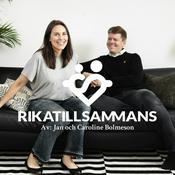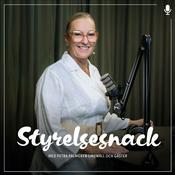254 avsnitt

Tower Block Fire Risks
2019-5-26 | 50 min.
Fire safety experts have told 5 Live Investigates that many of the 1,700 buildings in England are 'likely to fail' a new round of tests into cladding and building materials. Hospitals, schools, nursing homes and tower blocks are among buildings which could be "at risk", BBC 5 Live Investigates has learned. The government said it will monitor the test results this summer to decide if any immediate action needs to be taken. Two years after the Grenfell Tower fire, 5 Live Investigates has also learned that some people living in flats which were declared safe in the aftermath of the tragedy, have now discovered the buildings they live in DO pose a fire risk. The fire at Grenfell spread over the building in a matter of minutes; largely because of the combustible cladding the tower block was covered with. This type of cladding has now been banned. Government fire safety tests on other types of cladding have just started.Photo credit; Press Association

Revenge Porn
2019-5-19 | 49 min.
Four years after the introduction of new laws to target revenge porn offenders, 5 Live Investigates can reveal how cases are on the rise but the number of prosecutions is falling. The revelations come as a charity set up to help victims called the Revenge Porn Helpline reports a 150 per cent increase in the number of calls to its service Photo credit: Antonio Guillem\Getty

Democratic Football Lads Alliance
2019-5-12 | 49 min.
The Democratic Football Lads Alliance describes itself as an anti-extremist group of football supporters with a commitment to raising funds for the homeless and social justice campaigns. But critics say it’s a far right organisation which has an anti-Islamist agenda. Its marches and demonstrations have attracted rival groups of anti-fascists and have resulted in skirmishes. The Premier League says it has raised its concerns with the UK Football Policing Unit and the Home Office. There are also worries that closed DFLA Facebook groups are being used as a platform to promote anti-Muslim hatred and anti-migrant rhetoric and violence.Photo credit: Ollie Millington\Getty

Parents Accused of Exaggerating Illness in Children
2019-5-05 | 47 min.
Calls for a cross party inquiry into claims that a growing number of families are being accused of inventing or causing their children’s illness. It’s called Fabricated or Induced Illness (FII) and used to be known as Munchausen’s Syndrome By Proxy. It’s a rare form of abuse where parents exaggerate their child’s medical condition – or even cause it. Campaigners and charities say many families have been wrongly accused and want the inquiry to look at what they describe as a “wave of false allegations” and the current guidelines around FII. 5 Live Investigates first looked at this in March when we spoke to mums and dads threatened with having their children taken off them after being accused of FII. Following the programme, we have been contacted by other families who say this has happened to them. We’ve also been told about many other cases. One involves a mother accused of poisoning her two year old daughter and ordered to live apart from her for almost a year until the case was dismissed.Photo credit; Getty/Katarzyna Bialasiewicz

Limited Psychological Help for People with Skin Conditions
2019-4-28 | 43 min.
Abbie Bull is 22 and has had serious acne for three years. It got so bad she felt unable to leave the house for fear of being stared at. She developed depression and anxiety but when she went to her doctor for help, she didn’t get it. 5 Live Investigates has learned that thousands who suffer from serious skin conditions like acne, eczema and psoriasis, can’t access the psychological support they need because it either doesn’t exist where they live or they have to join long waiting lists. The programme surveyed 180 members of the British Association of Dermatologists dermatologists and asked them whether they had access to a dedicated psychodermatology service within the region they work. Three quarters of them said they didn't. NHS England say health authorities need to take into account the psychological needs of all patients. The Welsh Government say they expect health boards to put in place services tailored to the individual needs of patients and the Health and Social Care Board for Northern Ireland says it has just commissioned a psychodermatology service which will be available to all trusts in the country.
Fler podcasts i Näringsliv
Trendiga poddar i Näringsliv
Om 5 Live Investigates
Lyssna på 5 Live Investigates, Kapitalet och många andra poddar från världens alla hörn med radio.se-appen

Hämta den kostnadsfria radio.se-appen
- Bokmärk stationer och podcasts
- Strömma via Wi-Fi eller Bluetooth
- Stödjer Carplay & Android Auto
- Många andra appfunktioner
Hämta den kostnadsfria radio.se-appen
- Bokmärk stationer och podcasts
- Strömma via Wi-Fi eller Bluetooth
- Stödjer Carplay & Android Auto
- Många andra appfunktioner


5 Live Investigates
ladda ner appen,
börja lyssna.




































